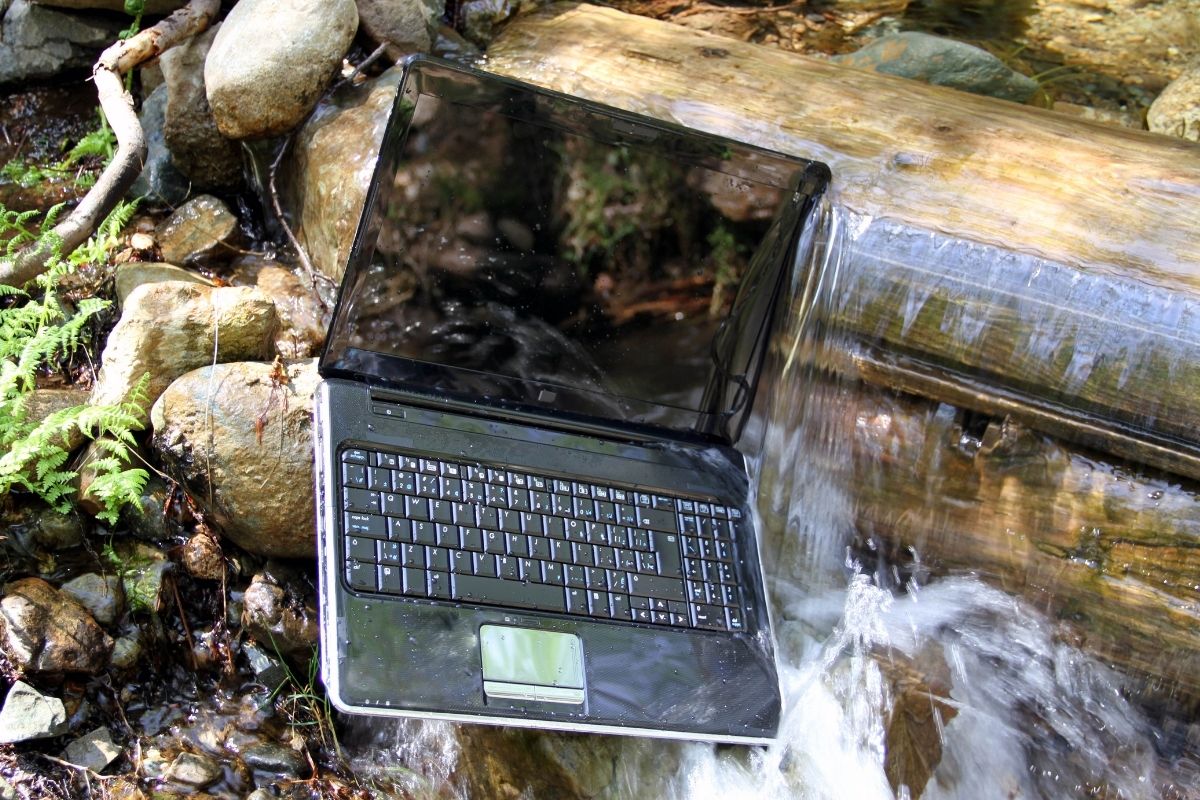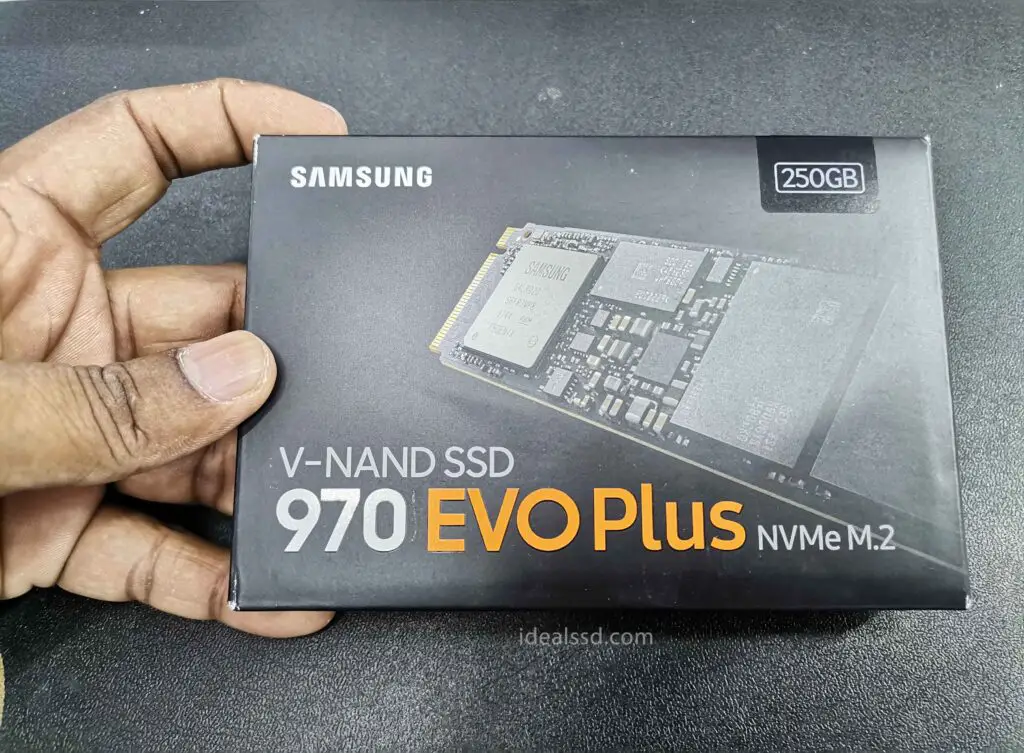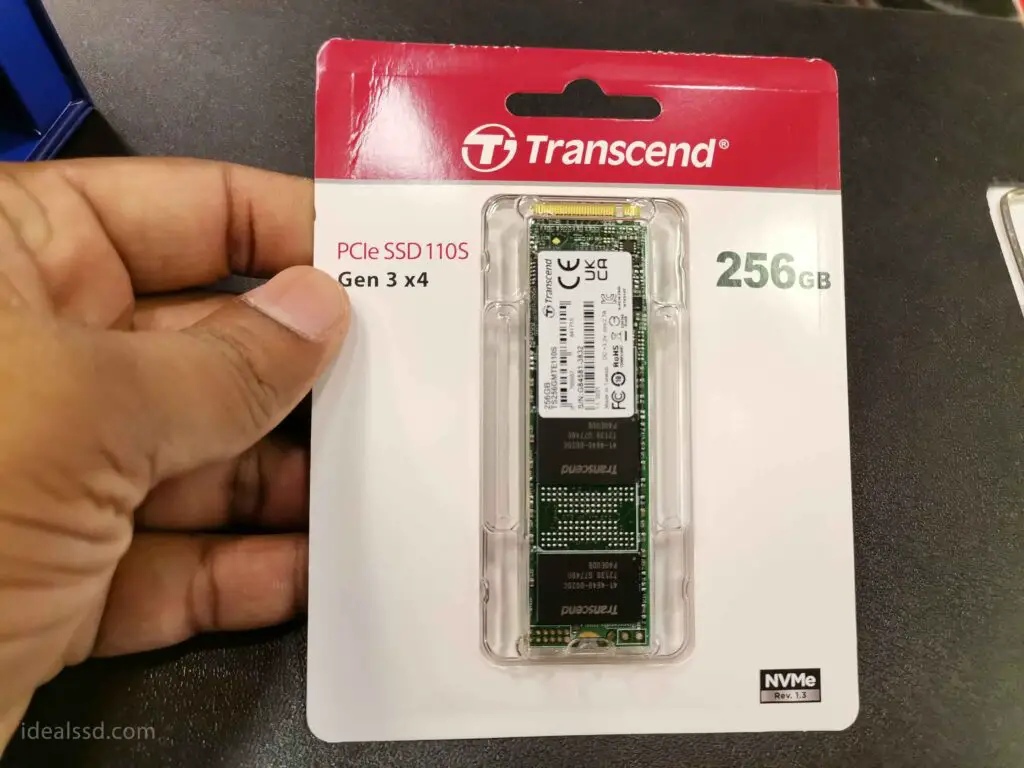Can SSD Survive Fall? The Truth about SSD Durability

There’s a lot of debate over whether SSDs are durable enough to survive a fall. Some people say that they have dropped their laptop with an SSD and the drive still worked afterwards, while others have had bad experiences with failed drives after a shortfall.
To answer the question, Yes. SSDs are much more durable than HDDs and can withstand greater shock and vibration. So if you drop your laptop with an SSD inside, there’s a good chance it will be just fine.
So, what’s the truth? Let’s find out.
What Is a SSD and How Does It Work?

Solid State Drives (SSDs) are a new technology that is taking the world by storm. SSDs have been around for about 10 years, but only recently has their popularity begun to soar. The reason for this can be attributed to two major factors: improved performance and smaller size.
An SSD is an electronic device that stores data on a solid-state memory chip. SSDs are similar to traditional hard drives (HDDs) in many ways, but there are some important differences that make SSDs a superior option for many users.
- First and foremost, SSDs are much faster than HDDs : This is because HDDs store data on spinning disks, which can take time to access. SSDs, on the other hand, have no moving parts and can therefore access data much faster.
- More durable than HDDs : This is because there are no moving parts to break or fail. SSDs can also withstand greater shock and vibration than HDDs.
- Lower power consumption : This is because SSDs have no moving parts, which means they use less power than HDDs.
- Cooler and quieter operation : This is also because SSDs have no moving parts, which means they generate less heat and make less noise than HDDs. With that being said even SSD has a optimum temperature to run. The higher or lower temprature will cause damage to SSDs. To know more about this refer to this article. Safe Operating Temperature For SSD
- Smaller weight : This is because SSDs are typically made with lighter materials than HDDs.
- Longer Life Span : The reason is that SSDs have no moving parts, which means they are less likely to fail than HDDs.
- Lower Power Consumption : SSDs uses chips instead of spinning disks which means it uses less power than HDDs.
The only downside to SSDs is that they are more expensive than HDDs. However, the price difference has been steadily decreasing over time, and as SSD technology continues to improve, the price gap is expected to close even further.
To know more about why you should consider replacing your old HDD with an SSD refer to the below articles.
- Why are SSDs So Expensive? And Why Are HDDs So Cheap?
- Reasons to Consider Replacing Your Traditional Hard Drive With an SSD
The Truth About SSD Durability

SSDs are shockproof and can survive a shortfall. They’re also more durable than HDDs, meaning they’re less likely to suffer damage from environmental factors like dust and moisture. However, SSDs are still vulnerable to physical damage, so it’s important to take care when handling them.
SSDs are made of electronic components, so they are susceptible to power surges.
SSDs are more durable than HDDs in extreme and hostile environments for a variety of reasons, the most significant being that they don’t contain moving parts such as actuator arms. SSDs can survive greater levels of shock and vibration, higher temperatures, strong magnetic fields, and accidental falls than HDDs. However, SSDs are not indestructible.
While they may be more resistant to physical damage than HDDs, SSDs can still be damaged by physical force. Dropping an SSD intentionally can cause the internal components to break, just like any other electronic device.
How Likely Is a SSD To Fall?
SSDs are usually on the computer’s motherboard, so they’ll reside well within any housing that might protect them from getting knocked around too much during daily use. The only concern with falls is if you have an external SSD that plugs into your PC via USB cable or an external enclosure. These are more likely to take a tumble since they’re not as snugly fit into place.
Even if an SSD does fall and hit the ground, there’s a good chance it will still work just fine. The main thing you want to avoid is when you install an SSD putting any undue stress or pressure on the drive when it’s not properly fit. Don’t apply unwanted pressure or use any liquids to clean that could potentially damage the sensitive components inside.
If you do drop your SSD and it stops working, there’s not much you can do to fix it. These drives are designed to be replaceable so you’ll just need to get a new one and start fresh.
Of course, there are recovery experts that might be able to save some of your data, but it will likely be quite expensive.
Tips for Preventing Your Drive From Getting Damaged in the First Place
Your SSD can definitely survive a fall, but there are some things you can do to prevent your drive from getting damaged in the first place.
- Make sure your computer is in a stable location, free of excessive movement or vibration.
- Keep your drive away from extreme heat or cold, and never drop it or throw it around. If you’re careful with your SSD, it should last you a long time.
- Always carry your laptop in a proper laptop bag to avoid any accidental falls.
- You should also keep an eye on your laptop’s battery life and make sure it doesn’t run too low too – a dying battery can cause your laptop to shut down suddenly, which could lead to your SSD getting damaged.
How a Good Laptop Bag Help To Protect Your Equipments Inside?
It is very important to take care of your laptop. You need a good bag that can protect it from scratches and spills. A good laptop bag can protect your SSD. This is because it will have a cushion that will keep your laptop from hitting the ground if you drop it. It will also have straps to keep it in place so it doesn’t move around as much. This can prevent your SSD from getting damaged from being jostled around.
There are many different types of bags on the market. Some people prefer a backpack, while others like a shoulder bag. Whatever type of bag you choose, make sure that it has enough padding to protect your laptop. I have these two types. But I prefer more of the backpack version because it’s easy for me instead of carrying the laptop from one hand. Below is the one I use and it’s really impressive.
Travel Laptop Backpack (Water Resistant Anti-Theft Bag)
Looking for a backpack that can handle all your travel needs? Look no further! This backpack features a separate laptop compartment, plenty of organizational pockets, and a convenient USB and headphone port.
Plus, the water-resistant and anti-theft design keeps your belongings safe and sound. Toss everything in this bag and head out on your next adventure!
For those who are interested in briefcase type here is a good one.
Black 15.6″ Classic Slim Briefcase Messenger Bag
Looking for a sleek and professional computer bag that won’t weigh you down? Check out this Black 15.6″ Classic Slim Briefcase Messenger Bag. This stylish bag is perfect for business travellers and busy professionals who need to stay connected on the go.
The spacious design features plenty of room for your laptop, files, and other essentials, while the foam-padded compartment protects your device from bumps and scratches. Whether you’re carrying it by the handle or wearing it over your shoulder, this versatile bag makes travelling with your technology a breeze.
A good laptop bag will also have plenty of compartments and pockets for storing all of your accessories. This includes things like your charger, mouse, and cables. Make sure that the bag you choose is big enough to fit your laptop and all of your other belongings.
It is an essential piece of equipment for any laptop owner. Make sure that you choose a bag that is right for you and your needs.
Conclusion
SSDs are shockproof and can survive a shortfall. However, when it comes to long falls from tall buildings or high-impact drops in the street, SSDs don’t always follow that rule. While some drives have been known to survive these kinds of falls, it’s not always the case.
If you’re worried about your SSD surviving a fall, there are a few things you can do to help protect it. First, make sure the drive is properly seated in its enclosure. Second, use a cushioned or shock-resistant case for added protection. Finally, avoid dropping your drive in the first place! By taking these precautions, you can help ensure that your SSD will be there for you when you need it most.
References
How much more can SSDs take fall damage compared to 2’5 HDDs? : https://linustechtips.com/topic/737250-how-much-more-can-ssds-take-fall-damage-compared-to-25-hdds/



